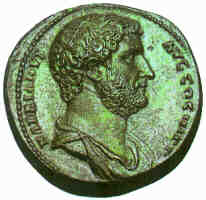
ENGLISH AND ITALIAN PROVERBS ABOUT DEVIL
ENGLISH PROVERBS
Devil: an evil being, often represented in human form but with a tail and horns.
INFORMAL someone, especially a child, who behaves badly: Those little/young devils broke my window. Quei diavoletti mi hanno
rotto la finestra.
INFORMAL HUMOROUS a person who enjoys doing things people might disapprove of. "I'm going to wear a short black skirt and thigh-length boots." "Ooh, you devil!". Have another slice of cake - go on, be a devil!
INFORMAL used with an adjective to describe someone and express your opinion about something that has happened to them:
I hear you've got a new car, you lucky devil! Ho sento che hai preso una macchina nuova, sei un diavolo fortunato.
He's been ill for weeks, poor devil. E' stato malato per settimane, povero diavolo.
Devilment (devilry) Diavoleria behaviour that causes trouble but is usually intended to be playful or amusing: He's up to some kind of devilment again, I'll be bound. Si sta di nuovo combinando qualche diavoleria, ne sono certo.
Devilishly: Diabolicamente. That's a devilishly difficult question. E' una questione diabolicamente difficile
Devil-may-care (se ne può impicciare il diavolo) not worrying or caring about the results of your actions: He has a rather devil-may-care attitude to his studies. Non ha assolutamente interesse ai suoi studi.
She-devil: Una diavolessa; a woman who is considered to be dangerous or evil
Better the devil you know (than the devil you don't). UK SAYING. Meglio il diavolo che conoci di quello che non conosci. said when you think it
is wiser to deal with someone familiar, although you do not like them, than to
deal with someone who you do not know, who might be worse.
Go to the devil OLD-FASHIONED, Andare (vai) al diavolo. something you say to someone annoying or bad to tell them to go away forever.
Speak/talk of the devil. Parli del diavolo... something you say when the person you were talking about appears unexpectedly:Did you hear what happened to Anna yesterday - oh, speak of the devil, here she is. Hai sentito che è successo ad Anna ieri? - oh, parli del diavolo... eccola.
What/where/how/why the devil OLD-FASHIONED INFORMALChe / dove / come / perché diavolo used to give emphasis to a
question: What the devil are you doing? Che diavolo stai facendo?
Where the devil have you been? Dove diavolo sei stato?
Be between the devil and the deep blue sea. Stare tra il diavolo e il profondo mare blu. to have two choices but both of them are equally unpleasant or inconvenient.
(to) give the devil his due. Dare al diavolo quanto gli spetta said when you admit that someone you do not like or admire does have particular good qualities: I don't like the man but - give the devil his due - he works incredibly hard. Quell'uomo non mi piace ma - diamo al diavolo quanto gli
spetta - lavora in modo incredibilmente intenso.
The devil finds work for idle hands. SAYING Il diavolo trova il lavoro per mani non occupate. said to show that you believe people who have nothing to do are more likely to get into trouble or commit a crime.
ITALIAN PROVERBS
Avere un diavolo per capello = To have a devil each hair (be like a real bear, be irritable)
Avere una paura del diavolo = Be very dreaded
Fare l'avvocato del diavolo = Be the devil's advocate
Essere un buon diavolo = Be a good person
Saperne una più del diavolo = To know a thing beyond the devil. To know a thing or two. To know always how to deal with everything.
La farina del diavolo va sempre in crusca = The devil's flour ends always in bran. Bad actions don't pay at all.
Se il diavolo ci mette la coda = if the devil puts his tail in (if things start to go badly because of something unexpected)
Il diavolo fa le pentole ma non i coperchi = the devil make pots but doesn't make lids. (you can do something bad but you can't hide it)
******
Are in you interested in learning Italian? ... check my site
:http://xoomer.alice.it/learn_italian/
Are you interested in a serious English-Italian discussion board? ... check my forum:
http://www.spazioforum.it/forums/?mforum=essereindue
Nothing commercial on my sites but only friendly!


